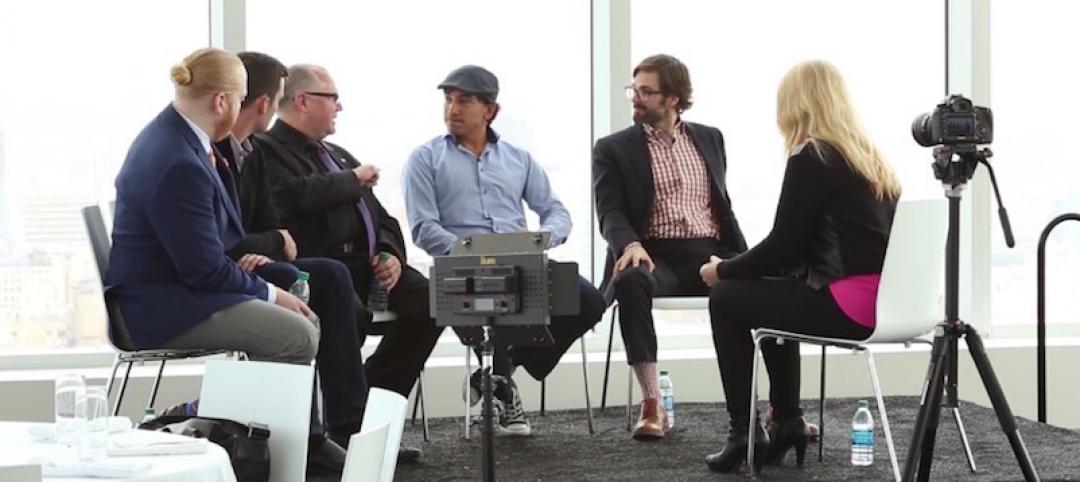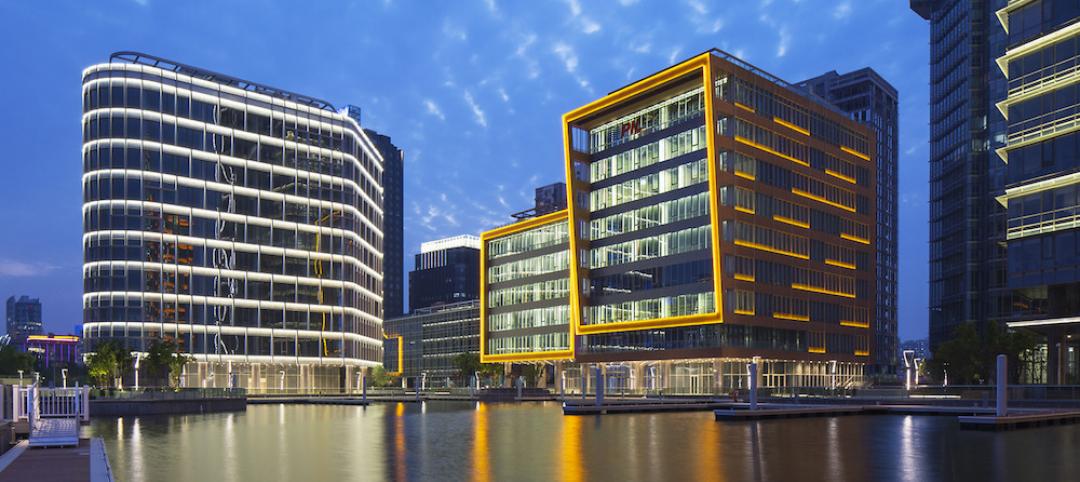The design nonprofit group Architecture for Humanity surprised everyone when it abruptly declared bankruptcy and closed shop in January 2015. Since that time, local chapters around the world have banded together in an effort to create a new identity and a new structure for the organization. In January 2016, they were briefly known as the Chapter Network before the newest rebranding effort was announced in early march.
The organization is now known as the Open Architecture Collaborative and is looking to retool its approach to “reach more people than we ever imagined with the level of locally focused engagement that humanitarian design ultimately demands,” Garrett Jacobs, the new Executive Director of the organization said in a statement.
As Curbed.com reports, the 30-chapter organization is based on ground-up governance and is looking to deliver “design advocacy, facilitation, assessment, and small build services to local grassroots chapters’ marginalized communities,” according to the group’s website. Additionally, OAC wants to help younger design professionals gain field experience.
While this rebranded organization is still in its infancy, it has many big ideas for the future.
“Cities are rapidly transforming and this organization provides local designers and experts to work with the communities that feel those pains the most,” Jacobs said in a video posted to the group’s YouTube channel.
A guiding principle for the OAC is that they believe if people design and build their own environments, they will be more likely to keep them safe, invest in them, and sustain them long term.
The organization will complete its board of directors shortly as the final few seats will be voted on and filled.
Related Stories
High-rise Construction | Jul 15, 2016
Zaha Hadid designs geometric flower-shaped tower for sustainable Qatar city
The 38-story building will have a mashrabiya latticed facade with hotel and residential space inside.
Building Team | Jul 11, 2016
Design-assist: The way to really fly [AIA course]
Experts explain the benefits of DA, a process where the subcontractors are retained to assist other Building Team members in the development of a design. Earn 1.0 AIA CES learning units by reading and taking the exam.
Building Team | Jul 11, 2016
Addressing client concerns about design-assist
Common concerns about DA include lack of familiarity, obtaining competitive pricing, and design liability.
Sponsored | Building Team | Jul 11, 2016
Construction Disruption at AECX: Technology, hackathons and the promise of change in LA
The lead up to AECX featured a discussion providing insight into the current state of the AEC technological revolution by exploring opportunities, challenges and choices AEC pros face.
Green | Jul 1, 2016
Perkins Eastman pledges to use EDGE green building system for five upcoming international projects
The firm will partner with the International Finance Corporation to promote sustainable building in emerging markets like India and China.
Healthcare Facilities | Jul 1, 2016
AIA releases summary of the 2016 Design and Health Research Consortium
Consortium members discussed how architects, designers, and health professionals can best apply design and health research in their communities.
Architects | Jun 30, 2016
The year's best small projects include a floating sauna, dental trailer, and smocked porch
AIA chose the 2016 recipients of the Small Project Awards. Every entry cost less than $1.5 million to build, with one as low as $900.
Architects | Jun 29, 2016
AIA: Healthy demand for all building types signaled in Architecture Billings Index
Recent client interest could signal resurgence for institutional market. May's ABI score was the highest mark in nearly a year.
Architects | Jun 28, 2016
5 easy ways architects can increase their profits
Whitehorn Financial Managing Principal Steve Whitehorn offers effective ways to recoup lost revenue, including a few strategies that capitalize on recent changes to the federal tax code.
AEC Tech | Jun 27, 2016
If ‘only the paranoid survive,’ what does it take to thrive?
“Sooner or later, something fundamental in your business world will change.” The late Andrew Grove (1936-2016), Co-founder of tech giant Intel Corp., lived by these words.

















